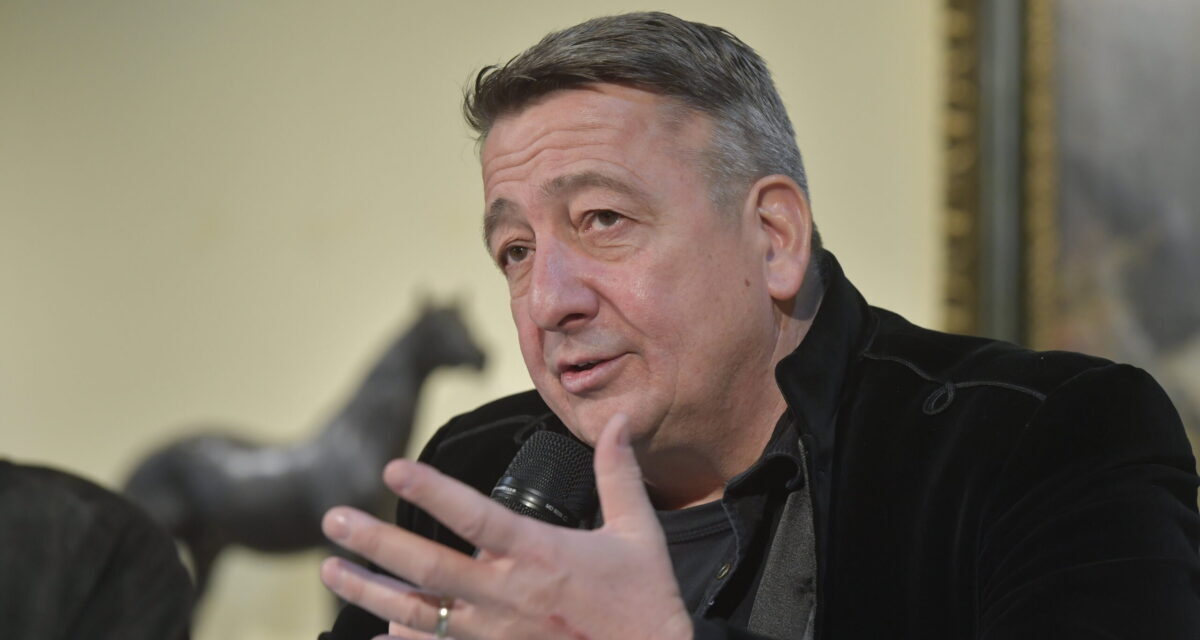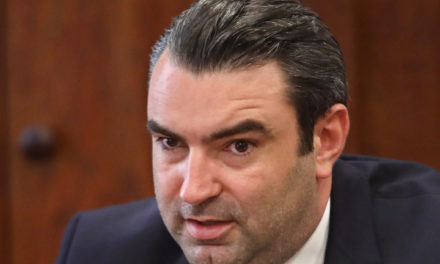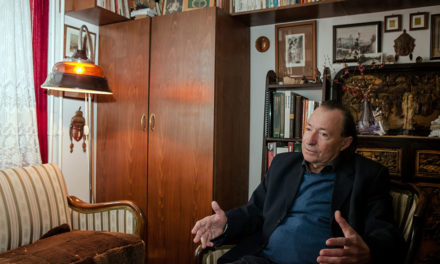Come on, what kind of principles are we talking about in the United States?
The husband goes home in the evening, while his wife:
"Honey, are you having dinner?"
"Why, I'm hungry already?"
This is what comes to mind when you think of the idea of Bulgaria, when they came up with an extra tax on Russian gas passing through their country.
This was exactly the plan:
Bulgaria imposes a tax of twenty leva (about four thousand HUF) on Russian gas transit per megawatt hour. This of course provoked immediate and angry reactions from the Hungarian and Serbian governments, with the Bulgarian Prime Minister first defending the extra tax, saying
"there is a good chance that the tax will create real competition in the gas market, from which the whole of Europe can benefit. We protect Bulgarian interests. These are revenues that can go into the state budget."
Bulgarian Finance Minister Asen Vasiliev explained:
“Since most Gazprom contracts are priced at the point of delivery in a given country, the tax will most likely have no effect on prices. [...] It will only reduce Gazprom's profits." This is of course a false statement, if this idea had been implemented, the price of gas in Hungary would have roughly doubled.
Fortunately, nothing will come of it. After Hungary announced that if Bulgaria did not give up its ideas, it could say goodbye to Schengen membership, the Bulgarians announced that they would withdraw the law. We are pleased to acknowledge the only correct and normal decision they could have made, but it is important to ask the question:
was this all really the Bulgarians' own idea?
Well, if we are looking for the answer to this, it does not hurt to revive how the construction of the Turkish Stream started.
Among the available materials, we can read the following: the construction works of Turkish Stream "were intended to start in June 2015, but for political reasons the intergovernmental agreement on the construction of the gas pipeline was only signed on October 10, 2016. Construction officially began on February 21, 2017. The construction of the sea section was started by the Russian gas company Gazprom near the resort town of Anapa on the Russian coast on May 7, 2017, and completed on November 19, 2018, near the European coast of Turkey, in the settlement of Kıyıköy. From Istanbul, Russian President Vladimir Putin and Turkish President Recep Tayyip Erdogan joined the ceremony for the completion of the sea section by video call. The subsea section began to be filled in October 2019 and was commissioned on January 8, 2020. The works continued with the construction of the connecting sections on both banks. The Serbian section of the Turkish Stream, the Balkan Stream, was opened in January 2021."
And then let's see how the left-liberal, "independent" press wrote about the cable. First, let's look at the HVG article:
"The Turkish Stream gas pipeline connecting Turkey with Russia was ceremonially handed over with the participation of Putin and Erdogan. The goal of the pipeline born from the ashes of the Southern Stream is Hungary and through it Western Europe, but for this its European branch, the Balkan Stream, has yet to be built. Which, in addition to the environmentally friendly turn of the EU and the renewal of the Ukrainian transit agreement, there is no need in the world."
I would highlight the "wise" and "foreseeing" sentence, according to which the Turkish Stream is not needed in the world in addition to the "environmentally friendly turn of the EU and the renewal of the Ukrainian transit agreement."
Oh, how about that! But I would be curious, what would we do today without this wire. We could also read this in the same place:
"Bulgaria previously bought gas through Romania, according to Bulgargaz, thanks to Turkish Stream, the country will save 46.2 million dollars a year, largely because it does not have to pay transit fees to Romania."
Well! This is how the Bulgarian idea gets another buttery hue. So with the Turkish Stream, they saved their previous transit fees, and now they wanted to levy an extra tax to "increase the revenues of the Bulgarian budget". Wouldn't that have been a little too much of a good thing?
And the most important thing was also written by HVG at the time - here it is:
"By the way, the US government, which opposes all pipelines connecting Europe and Russia on principle (and its own economic interests), in December 2019 imposed sanctions on the companies building Nord Stream 2 and Turkish Stream.
Both Berlin and Moscow claimed this as "violation of international conventions" and "foreign intervention". The sanctions also apply to companies carrying out any expansion or extension of the Turkish Stream - US government officials confirmed to the Euractiv news portal.
Here, I would like to highlight the "principle" provision intended for the correct little red tail. Come on, what kind of principles are we talking about in the United States? Especially about those who say that since the outbreak of the Russian-Ukrainian war, they have bought two and a half times as much enriched uranium from Russia as before the war, while they tell us every day what and how we should not buy from the Russians? Would these be the great American principles?
Because then the story of Atyafi Székely, who said this about the principles: - The principles? The principles, my good comas are like farts. You keep it as long as you can...
But the bottom line is that the United States tried with all its might to prevent the construction of the pipeline, and one of the means of this was that the companies involved in the construction were first ordered to report to Washington, and then, after they did not give in, they were hit with sanctions.
This is how a real colonialist behaves.
The Privátbankár wrote this at the time:
"Last Wednesday in Istanbul, the Turkish, Russian and Serbian heads of state, as well as the Bulgarian prime minister, symbolically opened the tap of the second branch of the Turkish Stream gas pipeline. However, the United States, which is paying more and more attention to defense and energy issues in the Balkans, will have a word or two about the construction of the missing Bulgarian section of the pipeline that supplies gas to Southeast Europe and Hungary.
After the ceremonial handover in Istanbul, Secretary of State David Hale, the number three leader of American foreign policy, made a statement to the Bulgarian BNR radio. According to him, Moscow uses its energy resources as a political tool:
The United States opposes the construction of the second TurkStream pipeline, which will transport gas through Bulgaria to the Southeast European region, because it sees it as a geostrategic project of Russia. We understand that energy security is very important to Europe and we understand that when our allies have secure access to energy, they are stronger and more reliable allies. The problem is that Moscow has other views, using its energy resources as a political tool to gain influence and divide Europe.
Nord Stream 2 and the second branch of the Turkish Stream are a problem, as they do not ensure Europe's energy diversification. They are destabilizing Ukraine because the pipelines are avoiding the country. We believe that Russia is acquiring another tool with which it can subdue Europe and cause instability."
Oh my God, there is hardly a lie more pathetic and ridiculous than when the United States is "concerned" about Europe's security and energy diversification. And how great it would be if, out of concern for the United States, Europe did not want to pay the "subsidies" intended for Ukraine, which, according to Foreign Minister Blinken's confession, "90 percent end up with American companies", and did not want to sell us its shale gas and LNG, which is three to four times more expensive.
Not to mention other things. And if someone doesn't think so, I recommend 444, the newsletter of the American government and the American secret services, which at the time wrote:
"According to the USA, it would be very important for the European countries that depend on Russian gas to be able to buy from elsewhere, because vulnerability poses a national security risk for them.
They can also recommend American imports, for which they advocate the construction of LNG (liquefied gas that can be transported by ship) terminals. They especially urge the completion of the terminal on the Croatian island of Krk, which has been planned for years. They are very supportive of connecting electricity and gas pipelines in the EU.
They strongly support the new EU energy package that urges market liberalization. (The Hungarian parliament objected to two points of this in a resolution in April.) They are very much against the construction of the Turkish Stream and Northern Stream 2 gas pipelines."
Clear speech.
And to make everything even clearer, it's time to take a look at the current Bulgarian Prime Minister and his party. Let's stick with 444, because that's how we know exactly what America is happy about:
"After several months of political deadlock, the new Bulgarian government was formed. In the last two years, parliamentary elections were held five times in Bulgaria, the last one on April 2. In the two months that have passed since then, the country has been led by an executive government. The new Bulgarian government was formed by the politicians of the GERB-SDS and the second-placed PP-DB party groups. The country's prime minister for the first nine months will be the politician of the centrist Let's Continue the Change (PP) party, Nikolaj Denkov. After that, for the second nine months, Marija Gabriel, a politician from the conservative Citizens for the European Development of Bulgaria (GERP), will take her place."
And then let's look at this particular Let's Continue The Change formation, which now gives the prime minister:
"Continuing Change is a political party in Bulgaria founded by two Harvard-educated students, Kiril Petkov and Asen Vasilev."
Ouch! The picture is starting to emerge! But who is Kiril Petkov? After Harvard, he went back to Bulgaria, where he became prime minister as a leader of the famous "anti-corruption fight", but not for long, because he was quickly overthrown in a vote of confidence. Summa summarum: this political formation is the typical "Made in America" political party, its leaders are the typical "Made in America" politicians, whose important and less important matters are dictated primarily from Washington.
So perhaps it is already understandable why the Bulgarians thought of this just now.
Anyway, it failed. But we can be sure that Washington will have a lot of other great ideas. Only other "Made in America" parties and politicians will slap themselves on the forehead that they are "heureka"!
Featured image: MTI/Szilárd Koszticsák













